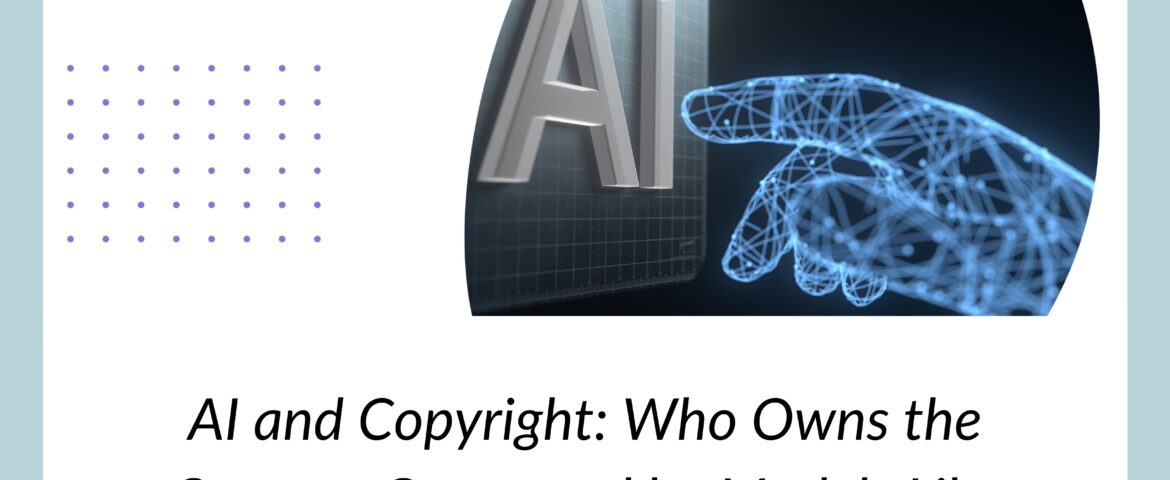Welcome to Built on Brains Learn from the Global Innovation Leaders Innovation and Patenting
Welcome to Built on Brains, the ultimate destination for Business and Innnovation leaders seeking to unlock the full potential of their innovations through R&D and Patenting.
Get MoreAI and Copyright: Who Owns the Content Generated by Models Like ChatGPT?
- Home
- AI and Copyright: Who Owns the Content Generated by Models Like ChatGPT?

Introduction
The rise of advanced AI models like ChatGPT has revolutionized the fields of artificial intelligence (AI) and natural language processing (NLP). These sophisticated models, powered by vast datasets and complex algorithms, can generate text that closely mimics human language, opening up new possibilities in various industries. However, as these models become more capable, they also raise critical questions about copyright ownership and the legal implications of content generated by AI.
Understanding Copyright Basics
Copyright law grants creators exclusive rights to their original works, including reproduction, distribution, and public display. But with AI models like ChatGPT creating content that closely resembles human authorship, the traditional notion of copyright ownership becomes blurred. Who holds the rights to AI-generated content: the developer, the user, or the AI itself?
AI as a Tool: The Traditional View
One perspective views AI models as sophisticated tools, akin to a paintbrush or camera. In this view, AI is a tool developed by humans, and the copyright for any content it produces belongs to the human creator or the organization that developed and deployed the AI model. This aligns with traditional copyright laws, where the person or entity using the tool retains ownership over the output.
Authorship Challenges: AI as an Independent Creator
On the other side of the debate, some argue that AI models are not just tools but should be seen as autonomous creators. AI like ChatGPT can generate unique, original content without direct human input, making the case for AI authorship. This raises complex legal and philosophical questions: Can AI hold copyright? If so, how would ownership be attributed?
Derivative Works and AI-Generated Content
A significant concern in AI-generated content is whether it qualifies as original work or merely a derivative of pre-existing material. AI models, including ChatGPT, rely on extensive datasets, which may include copyrighted works. The question is whether the AI’s output is original enough to warrant its own copyright or if it simply transforms existing works.
Additionally, AI-generated content might incorporate elements of copyrighted material, raising concerns about fair use and potential infringement. Determining whether AI output falls within the bounds of fair use, such as for commentary, news, education, or research, is crucial. If the AI exceeds these limits, there may be legal issues regarding infringement and the potential impact on the market value of the original work.
Legal and Ethical Implications
The legal landscape surrounding AI-generated content is still evolving. While some jurisdictions may attribute copyright ownership to the human developer or organization, others are exploring the possibility of recognizing AI as a distinct creator.
Ethically, transparency is key. Developers and organizations using AI models must clearly state the role of AI in content creation and ensure that intellectual property rights are respected. This transparency builds trust with users and ensures proper attribution in the creative process.
Conclusion
As models like ChatGPT continue to evolve, the debate around copyright ownership for AI-generated content remains unresolved.Balancing human creativity with the unique capabilities of AI is essential, and the legal and ethical frameworks surrounding AI-generated works will undoubtedly continue to develop as technology progresses.
For now, finding a balance between these transformative tools and traditional copyright principles remains a pressing challenge.
Share this
- Share :


Leave A Comment